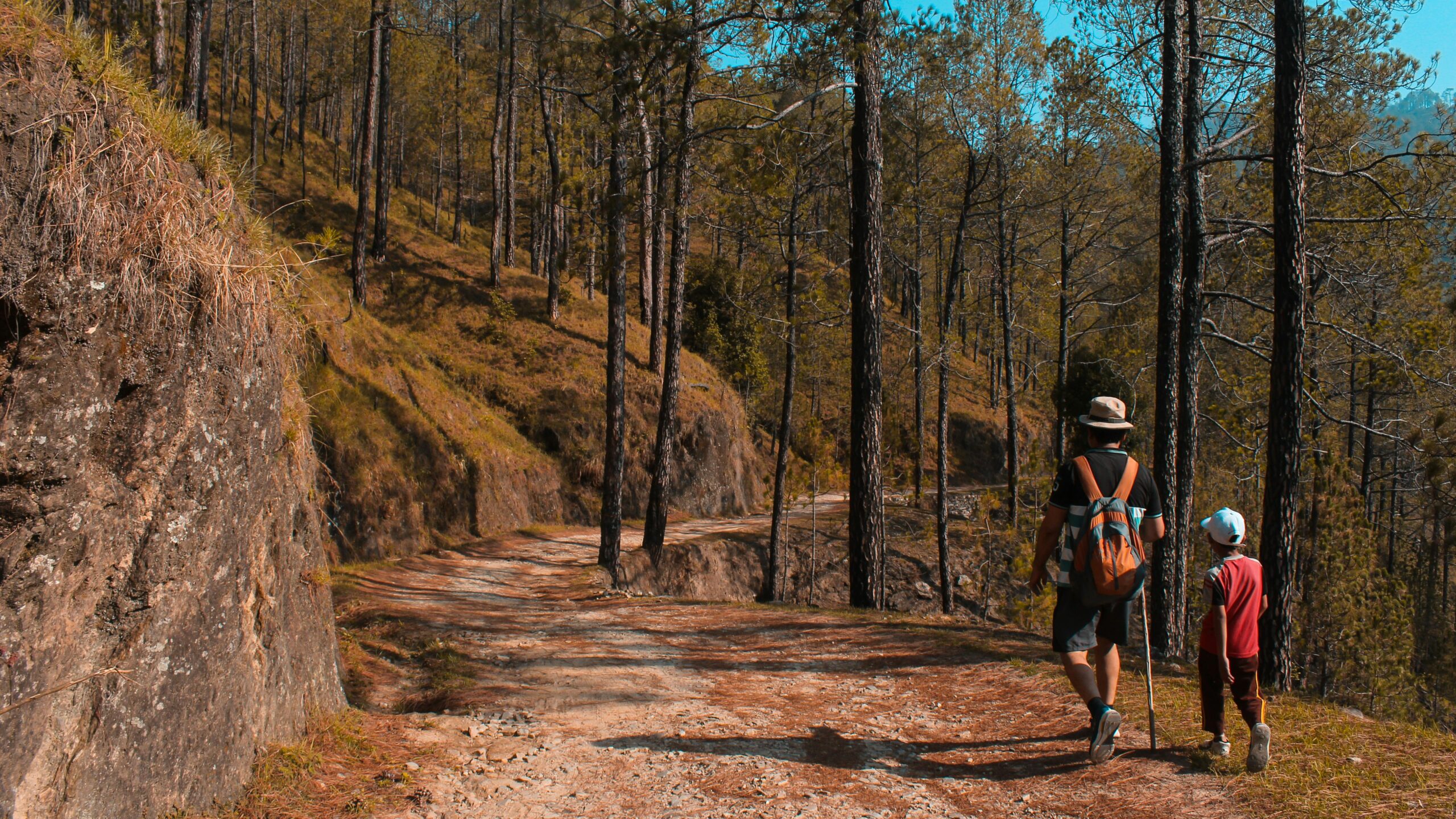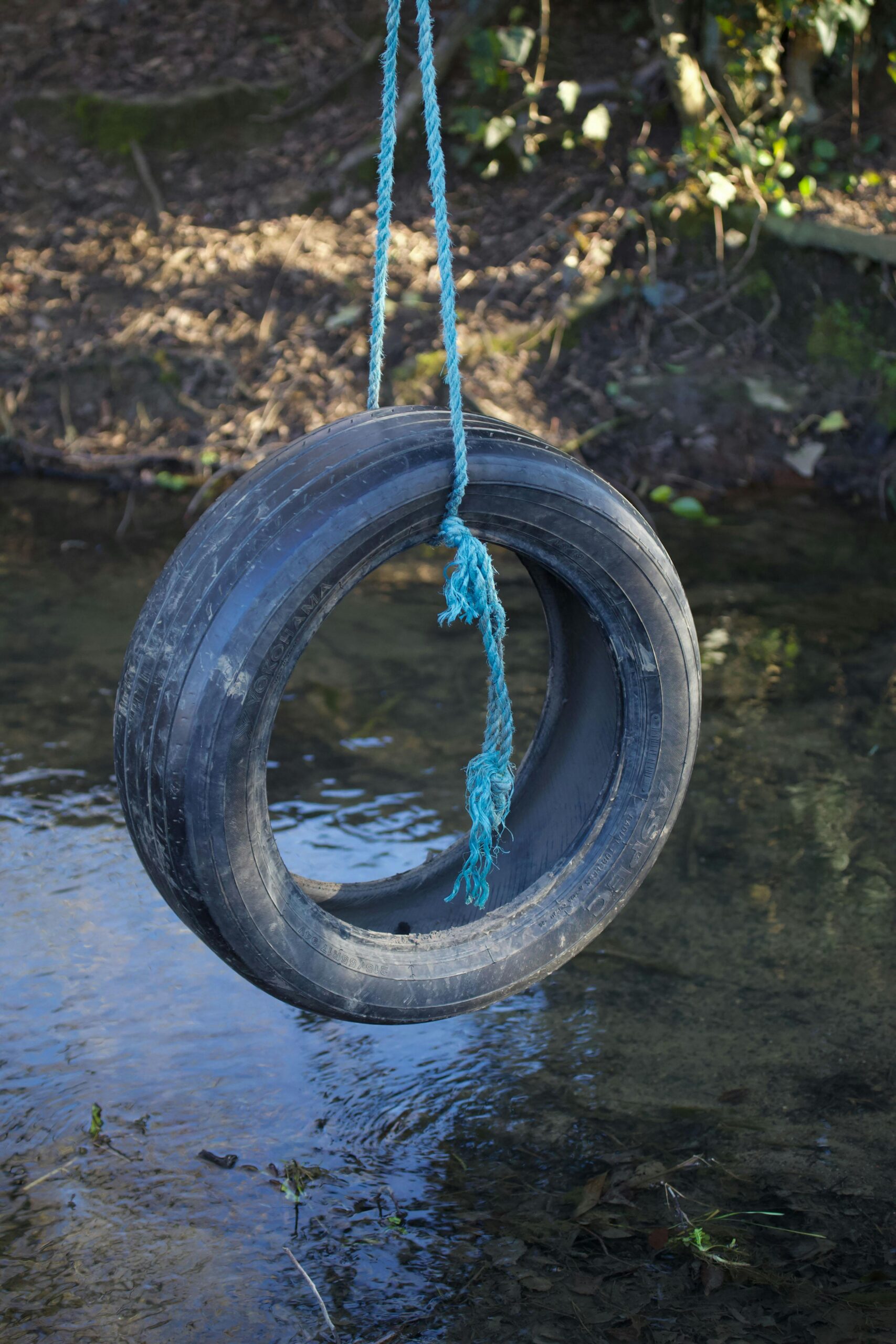
Kurt Hahn, the visionary behind Outward Bound, identified six declines of youth that have only intensified in the modern world. As parents, educators, and mentors, we must ask ourselves: Are we raising a generation equipped to thrive?
In an age of screens, convenience, and instant gratification, Hahn’s warnings feel eerily prophetic. The good news? Nature holds the antidote. By rewilding our kids and reconnecting them with the natural world. We can combat these declines and foster resilience, creativity, and compassion. Let’s explore these six declines, their impact today, and how outdoor experiences can help reverse them.
1. The Decline of Fitness Due to Modern Methods of Locomotion
Our ancestors moved constantly. Today, kids sit. They sit in classrooms, on couches, in cars. Childhood obesity, and cardiovascular diseases are skyrocketing. The human body is designed for movement, yet modern transportation and technology have removed that need.
Modern conveniences have reduced the necessity of movement in daily life. Kids are dropped off at school instead of walking or biking. Elevators and escalators replace stairs. Even play has become sedentary, with video games and social media replacing the physically engaging outdoor games of previous generations. The result? A steep decline in physical fitness, endurance, and coordination.
How Nature Reverses This Decline:
- Outdoor play promotes natural, full-body movement: running, climbing, balancing, and jumping.
- Hiking, biking, and paddling engage kids in joyful exertion without the drudgery of structured workouts.
- Exposure to fresh air and sunlight enhances immune function, mood, and overall vitality.
Call to Action: Take your kids outside today. Walk instead of drive. Make movement fun, not forced. Encourage them to explore trails, build forts, and climb trees: nature’s ultimate jungle gym.

2. The Decline of Initiative and Enterprise Due to “Spectatoritis”
Spectator culture has reached a fever pitch. Kids binge-watch shows, scroll endlessly, and consume content without creating. Social media fosters passive engagement, making children observers of life rather than active participants.
This culture of passive consumption has long-term consequences. When children only watch rather than do, they become hesitant to take initiative. They fear failure because they have rarely been in situations where they must problem-solve or make real-time decisions. When entertainment is always at their fingertips, they lose the drive to create their own adventures, seek out challenges, or take risks.
How Nature Reverses This Decline:
- Outdoor play fosters problem-solving, curiosity, and self-reliance.
- Nature challenges kids to take initiative: whether navigating a forest, building a shelter, or catching a fish.
- Unstructured playtime in the wild fosters leadership, adaptability, and resilience.
Call to Action: Limit screen time. Replace passive entertainment with active engagement. Encourage hands-on outdoor experiences where kids must make decisions, take risks, and create their own adventures.
3. The Decline of Memory and Imagination Due to the Restlessness of Modern Life
Fast-paced, overstimulated lives leave little room for deep thought. Kids are bombarded with information, but do they retain it? Are they creating new ideas, or just consuming content at lightning speed?
Today, children rarely experience true mental stillness. They are constantly exposed to rapid-cut videos, notifications, and multi-tasking environments that demand their attention but never allow for deep processing. This has led to shorter attention spans and a reliance on external stimuli rather than their own imagination. The result? Creativity and memory suffer, as the brain struggles to consolidate information in a meaningful way.

How Nature Reverses This Decline:
- Time in nature slows the mind, allowing deeper reflection and stronger memory retention.
- Unplugging from digital distractions fosters creativity, storytelling, and imaginative play.
- Observing wildlife, tracking animals, and exploring new landscapes ignite curiosity and wonder.
Call to Action: Give kids the gift of boredom. Let them wander in the woods, lay in the grass, and let their minds roam free. Creativity blossoms when the noise of modern life is muted.
4. The Decline of Skill and Care Due to the Weakened Tradition of Craftsmanship
We live in a disposable culture. Few children learn to build, repair, or create with their hands. Traditional crafts, from woodworking to foraging, are fading away, leaving behind a generation with little practical skill.
Many children grow up without ever using tools, planting a garden, or fixing something that is broken. This not only leaves them ill-equipped for practical life tasks but also diminishes their sense of personal accomplishment. When everything is designed to be replaced instead of repaired, patience, focus, and the value of craftsmanship are lost.
How Nature Reverses This Decline:
- Bushcraft, primitive skills, and hands-on projects teach patience and attention to detail.
- Gardening, fishing, and woodworking instill a sense of craftsmanship and respect for materials.
- Learning to start a fire, carve a spoon, or track animals fosters competence and confidence.
Call to Action: Teach your child a skill this week. Whether it’s whittling, knot tying, or fire starting, invest in their ability to create and problem-solve with their own two hands.

5. The Decline of Self-Discipline Due to the Ever-Present Availability of Stimulants and Tranquilizers
Instant gratification is the enemy of self-discipline. Junk food, video games, and social media dopamine hits train kids to seek quick rewards rather than work for long-term goals.
With constant access to entertainment, processed food, and distractions, children are rarely required to delay gratification. The ability to work toward a goal over time is becoming rare, and the impact is visible in education, work ethic, and personal development. Kids expect immediate results, and when they don’t get them, they give up.
How Nature Reverses This Decline:
- Outdoor adventures require patience, endurance, and delayed gratification.
- Camping, hiking, and survival challenges build mental toughness and self-control.
- Nature instills a sense of responsibility—caring for gear, tending a fire, and respecting wildlife all require discipline.
Call to Action: Create a “nature challenge” for your kids—set a goal like hiking a certain distance, learning a survival skill, or completing a multi-day camping trip. Teach them that true reward comes from effort, not instant clicks.
6. The Decline of Compassion Due to the Unseemly Haste of Modern Life
Compassion is waning in a world that moves too fast. When people rush, they overlook. When kids are absorbed in screens, they fail to connect with others in meaningful ways.
This decline is evident in rising rates of anxiety, loneliness, and lack of empathy. When children grow up detached from real-world experiences, they struggle to understand or care for the struggles of others. Digital interactions lack the depth of face-to-face experiences, making it harder for kids to develop emotional intelligence.
How Nature Reverses This Decline:
- Time in nature fosters a sense of interconnectedness—with the earth, animals, and people.
- Group outdoor experiences teach cooperation, empathy, and teamwork.
- Observing and caring for wildlife nurtures a deep respect for life.
Call to Action: Slow down. Spend quality time outdoors with your children. Foster deep conversations, encourage curiosity about the natural world, and model kindness and patience.

Conclusion
The six declines of youth are not irreversible. By embracing the outdoors, fostering independence, and allowing children to engage with the natural world, we can counteract these harmful trends. Rewilding is not just about adventure. It is about reclaiming what has been lost. If we want our children to grow into strong, compassionate, and capable adults, we must give them the tools to thrive. The wild is calling. Let’s answer together.





